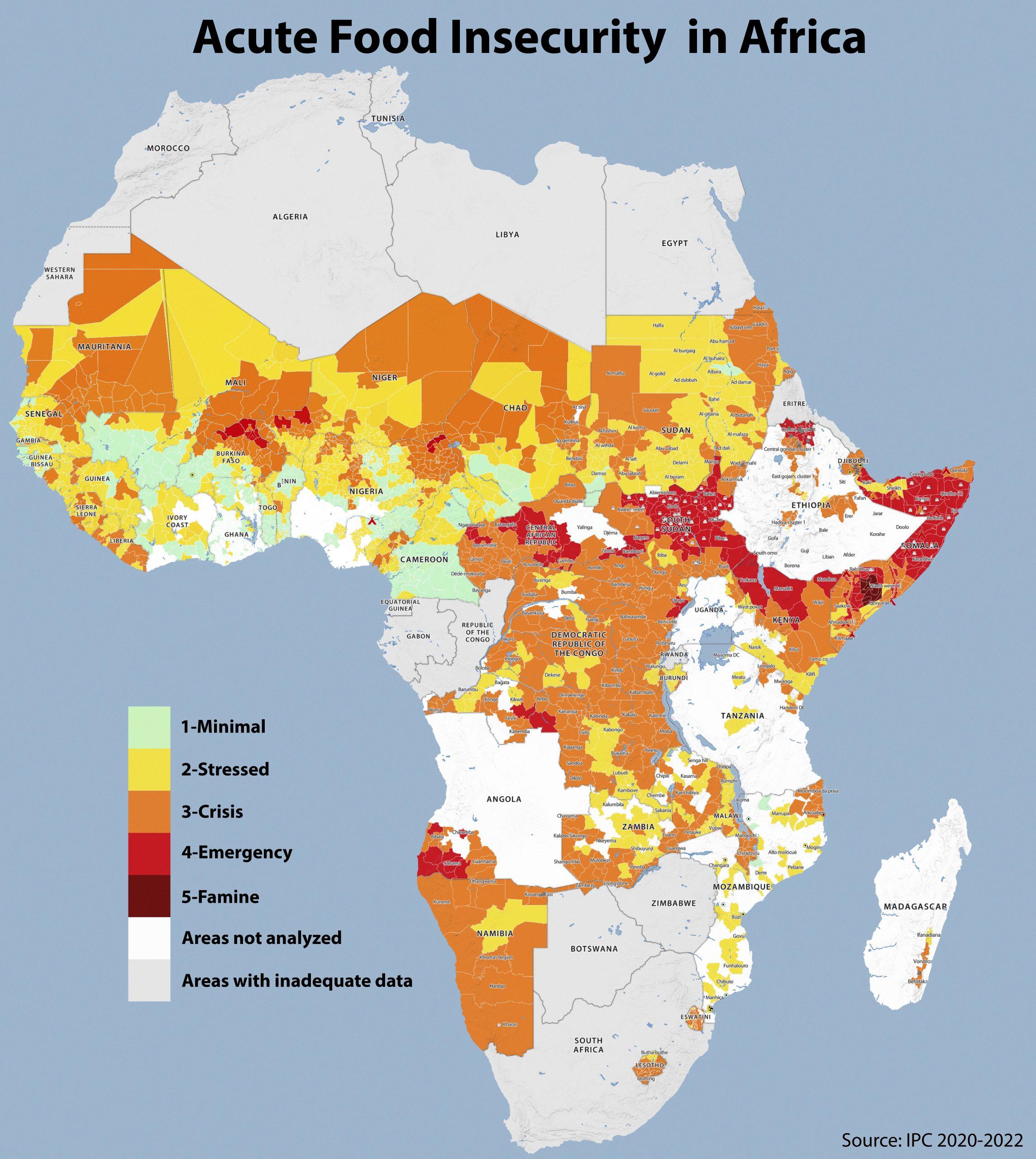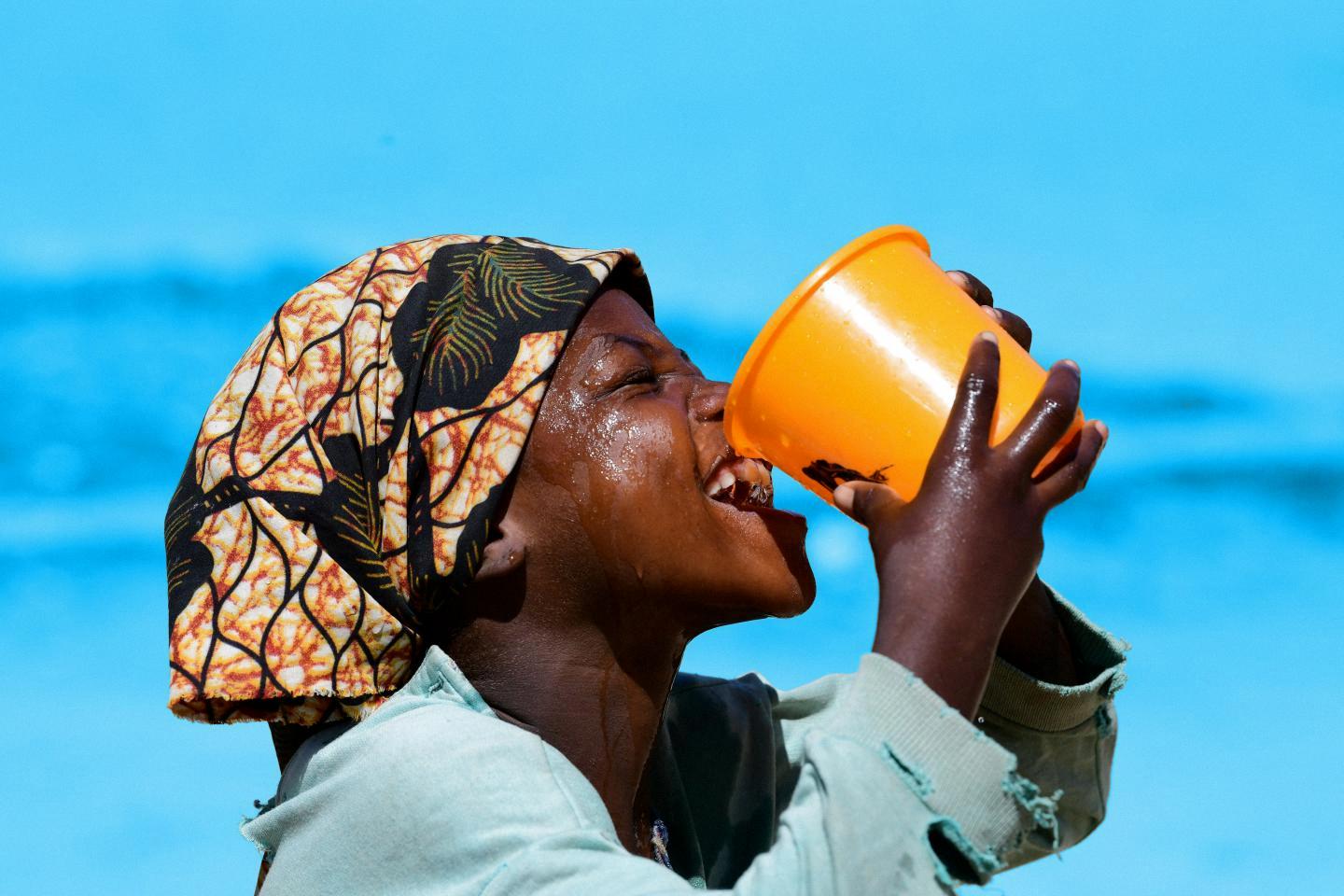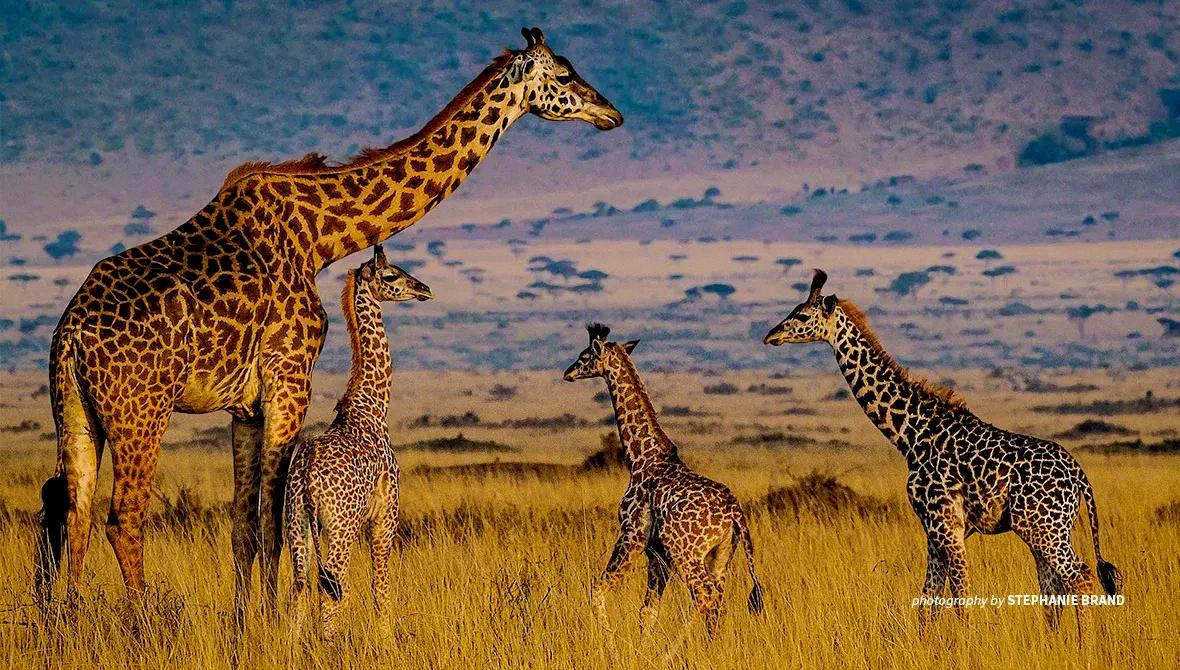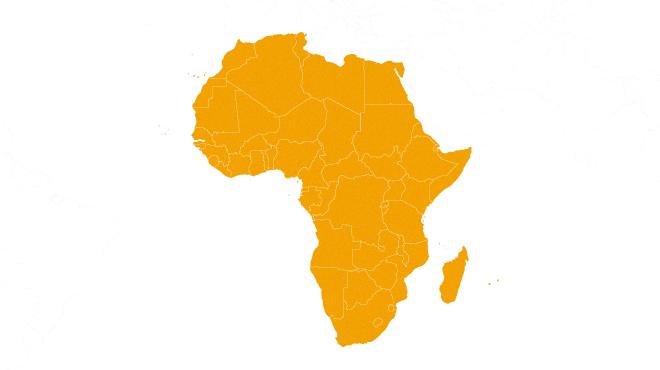Africa is a continent that is often associated with warm temperatures, hot sun, and exotic wildlife. However, many people are surprised to learn that Africa does, in fact, get cold. Winter in Africa occurs over June, July, and August, and while it may not be as frigid as some other parts of the world, it can still be quite chilly.
Southern Africa experiences about four different climates, including subtropical, cold semi-arid, warm and cold desert climates. The temperature can vary greatly depending on the region and the time of year, but in general, mean monthly temperatures are lower than in tropical climates, dropping to about 50 °F (10 °C) in winter. During the day, temperatures can reach up to 70 °F (21 °C), but overnight lows can drop to near freezing.
One of the most significant factors that affect temperatures in Africa is altitude. The higher the altitude, the colder the temperature. Countries like South Africa and Lesotho have high mountains that experience reliable snowfall during the winter months, making them popular destinations for winter sports enthusiasts.
Even in areas where snow is not common, winter can still be chilly. In Johannesburg, for example, the average temperature during the winter months is around 59 °F (15 °C), with nighttime temperatures dropping to around 41 °F (5 °C). While this may not be freezing, it is still cold enough to warrant warm clothing and jackets.
It’s important to note that while Africa may experience colder temperatures during the winter months, it is still a warm and sunny continent for much of the year. Summer temperatures can reach well above 100 °F (38 °C) in some regions, making it a popular destination for those looing for a warm, tropical climate.
While Africa may not be the first place that comes to mind when you think of cold temperatures, it does, in fact, get cold during the winter months. Altitude plays a significant role in determining temperatures, and regions with high mountains can even experience snowfall. So, if you’re planning a trip to Africa during the winter months, be sure to pack warm clothing and prepare for chilly nights.
Does Africa Experience Snow?
Africa does get snow. While many people associate Africa with heat and dry deserts, the continent actually has several regions with high elevations whee snowfall is common. The most well-known of these regions is probably the Atlas Mountains, which stretch across Morocco, Algeria, and Tunisia. At elevations above 8,000 feet, the Atlas Mountains receive snowfall during the winter months, and it’s not uncommon to see the peaks covered in snow.
Another region in Africa that receives snow is the Drakensberg Mountains in South Africa and Lesotho. These mountains, which are also known as the Dragon Mountains, are the highest in southern Africa and have peaks that reach over 11,000 feet. During the winter, snowfall is common in the higher areas of the range, and the snow often remains on the ground for several days.
In addition to these two regions, there are other areas in Africa where snowfall occurs, such as the Rwenzori Mountains in Uganda and the High Atlas Mountains in Morocco. While snow is not a regular occurrence in most parts of Africa, it’s important to remember that the continent is diverse and has a wide range of climates and landscapes, including those where snowfall is possible.
Source: africacenter.org
The Coldest Months in Africa
The coldest months in Africa typically occur during the winter season, which falls betwen June and August. During this time, temperatures can drop significantly in many parts of the continent, particularly in countries located in the southern hemisphere such as South Africa. In the central plateau region of South Africa, which includes provinces like Gauteng and Free State, average temperatures can remain below 20°C (68°F) due to the high altitude of the area. It’s worth noting, however, that the climate and temperature patterns across Africa can vary widely depending on the region, and some areas may experience colder temperatures at different times of the year.
Winter Weather in Africa
In general, Africa’s winter season, which occurs over June, July, and August, is not extremely cold. However, temperatures do vary depending on the region. Southern Africa, for example, experiences about 4 different climates including subtropical, cold semi-arid, warm and cold desert climates, which can affect the temperature during the winter season. In some regions, temperatures can drop quite significantly, while in others, it remains relatively mild. Therefore, it is important to check the specific region you plan to travel to during Africa’s winter season to determine what the temperature will be like.
Winter in Africa
The winter season in Africa is characterized by lower temperatures than tose experienced during the summer months. The mean monthly temperatures drop to around 50 °F (10 °C) in some regions, making it considerably cooler than the tropical climate experienced in other parts of the continent. The winter season in North Africa occurs from December to February, while the southern parts of Africa experience winter from June to August. During this season, the days are shorter, and the nights are longer, with some areas experiencing frost and occasional snowfall. Despite the cooler temperatures, the days are often sunny, making it a great time to explore and enjoy the natural beauty of Africa.
Has Snow Ever Fallen in Florida?
It has snowed in Florida before. While it is a rare occurrence, there have been instances of snowfall in various parts of the state throughout history. In January 1977, for example, a significant snowfall event occurred in much of northern Florida, with some areas receiving up to 2 feet of snow. More recently, in January 2018, snow flurries were reported in Tallahassee, marking the first time the city had received snow in nearly 30 years. while snow in Florida is not common, it is not completely unheard of and can occur under certain weather conditions.
Source: unicef.org
Celebrating Christmas in Africa
Christmas is celebrated in Africa. Despite the fact that Christianity is not the dominant religion in many African countries, Christmas is widely observed troughout the continent. In fact, in some African countries like Nigeria, Christmas is a public holiday. The celebration of Christmas in Africa is typically marked with religious services, carol singing, gift-giving, and feasting. Additionally, many African communities have their own unique festive traditions, such as the lighting of candles or the exchange of special foods. while the celebration of Christmas in Africa may differ slightly from Western traditions, it remains an important holiday for many Africans, regardless of their religious affiliation.
Does Africa Have Four Seasons?
Africa does not have four seasons like many oter regions in the world. Most countries in East and Southern Africa have a wet season and a dry season. The wet season is characterized by rainfall, which can range from light showers to heavy downpours, while the dry season is marked by little to no rainfall. The length and intensity of these seasons can vary depending on the region and location within the continent. Some areas may experience a short wet season and a long dry season, while others may have a longer wet season and a shorter dry season. Therefore, Africa’s climate is quite unique and different from other regions of the world, with a distinct pattern of wet and dry seasons.
The Hottest Month in Africa
The hottest month in Africa varies depending on the specific region of the continent. However, in general, January is considered to be the hottest month in many parts of Africa, including South Africa. During this month, temperatures can reach as high as 32°C (89.6°F) in South Africa, making it one of the best times to visit the country for beach activities and enjoying beautiful sunsets. It’s important to note that other regions in Africa may experience different peak temperatures during different months of the year due to variations in climate and geography.
Snowfall in African Countries
There are only two main countries in Africa where snowfall occurs on a somewhat regular basis. The first country is South Africa, which is located in the southernmost region of the continent. The Drakensberg mountain range in South Africa is known for its snow-capped peaks during the winter months of June to August. The highest peak, Mafadi, reaches an elevation of 3,450 meters and often experiences snowfall.
The scond country is Lesotho, which is a small landlocked country entirely surrounded by South Africa. Lesotho is known as the “Kingdom in the Sky” due to its high elevation, with an average altitude of 1,500 meters above sea level. The Maloti Mountains in Lesotho are another area where snowfall occurs during the winter months. The highest peak, Thabana Ntlenyana, rises to an elevation of 3,482 meters and is the highest point in southern Africa.
It is worth noting that snowfall in these countries is not as frequent or heavy as in other parts of the world, but it is still a unique and stunning natural phenomenon to witness.
Source: awf.org
The Coldest Areas of Africa
The coldest part of Africa is the country of Lesotho. This small, landlocked country is located in southern Africa and is known for its mountainous terrain. Lesotho has an elevation range of 1,400 to 3,482 meters above sea level, whch contributes to its frigid climate. During the month of June, temperatures in Lesotho can drop to 0 degrees Celsius or even lower, making it the coldest country in Africa. Regular heavy snowfall is also common in the higher mountain ranges. It’s interesting to note that Lesotho has the highest low point of any country in the world, with its lowest point being 1,400 meters above sea level.
The Climate of the Cape of Africa
The Cape of Africa, also knon as the Cape Peninsula, experiences a Mediterranean climate that is characterized by cool and mild winters and warm and dry summers. This means that while it can get chilly during the winter months, with temperatures dropping to around 10°C (50°F), it is not considered a cold region overall. In fact, the winters are often accompanied by rain, which can make it feel even colder, but this is balanced out by the beautiful clear skies and warm temperatures of the summer months. So, while the Cape of Africa may not be known for its extreme heat or cold, it does offer a pleasant and comfortable climate for visitors and residents alike.
The Hottest Place on Earth
The hottest place on Earth is located in Death Valley, California, USA. This region holds the record for the highest air temperature ever recorded on the planet, which occurred on July 10th, 1913. The temperature reached a scorching 56.7°C (134.1°F) in the Furnace Creek area of the desert. Even in the summers, average temperatures in the region often exceed 45°C (113°F). The extreme heat in Death Valley is caused by its low elevation, which results in a lack of moisture and an abundance of hot, dry air. Despite the harsh conditions, Death Valley is home to a unique and diverse ecosystem, including severl plant and animal species that have adapted to survive in the extreme heat.
The Coldest Continent on Earth
Antarctica is the coldest continent on Earth. With temperatures dropping as low as -89.6°C at Vostok station in 1983, it is the most frigid place on the planet. In addition to being the coldest, it is also the windiest, driest, and highest continent. Despite popular belief, the South Pole is not the coldest place in Antarctica. The extreme temperatures and harsh conditions of Antarctica make it a challenging environment to explore, but also a scientifically valuable one for studying climate change and the impact of human activity on the planet.
Source: acleddata.com
Average Summer Temperatures in Africa
Africa is a vast continent with a wide range of temperatures durng the summer months. In general, temperatures can reach up to 104 degrees Fahrenheit (40 degrees Celsius) in some regions. However, it’s important to note that different regions of Africa can have vastly different climates. For example, the Sahara desert in North Africa can reach extremely high temperatures, often exceeding 122 degrees Fahrenheit (50 degrees Celsius). In contrast, the coastal regions of Southern Africa have a more moderate climate, with temperatures averaging around 77 degrees Fahrenheit (25 degrees Celsius) during the summer months. the climate in Africa is diverse and can vary greatly depending on the region you’re in.
The Climate of Hawaii: Does It Get Cold?
Hawaii does get cold, particularly in the higher elevations. The temperatures can drop to freezing levels in the mountains, and snowfall is not uncommon on the summits of Mauna Kea and Mauna Loa on the Big Island. However, in general, the weather in Hawaii is mild and pleasant throughout the year, with temperatures typically ranging from the mid-60s to mid-80s Fahrenheit. So while Hawaii may not experience the harsh winter conditions of some oter parts of the world, it is still important to pack appropriately if you plan on visiting the higher elevations or during the cooler months.
Conclusion
Africa is a vast and diverse continent that boasts a range of climates and landscapes. From the hot and humid tropical regions to the colder and snow-covered high altitudes, Africa offers a unique experience for travelers and locals alike. While the winter season may not be as harsh as in other parts of the world, temperatures do drop considerably in some regions. Nonetheless, Africa’s rich culture, history, and natural wonders make it a fascinating destination to explore year-round. Whether you’re looking to hike mountains, relax on pristine beaches, or immerse yourself in vibrant cities, Africa has something to offer for everyone.




